
As London prepares to host the 2012 Olympics, there's been no shortage of stories on the condition of the buildings erected for the in Athens. The Olympic sports complex is , the man-made lake set up to provide water to the slalom course , and the stadiums built for table tennis and gymnastics . The situation is easy to amplify in a negative way given the economic situation in Greece. the country's debt, or at least part of it, on a rush to build extravagant facilities for the Olympics. While some have pointed out that Greece's travel infrastructure was significantly upgraded because of the 2004 Games, Athens has mostly been cast in a negative light. Is that fair? How have other former Olympic stadiums fared? What exactly happens to host cities after the Olympics?
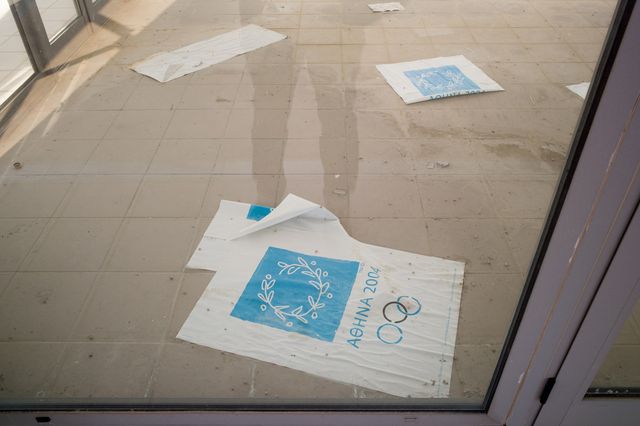
Photographers and have set out to answer that last question. So far they have picked seven former host cities to visit so they can interview people and photograph anything and everything related to the Olympics. Their answer will take the form of a 200-page photo book, , due out in March 2013. The duo started a so they can raise money to travel to seven more cities and finish the project. Those people that donate will get to help pick the last two cities that Pack and Hustwit visit. We emailed Pack to see what they've discovered so far.
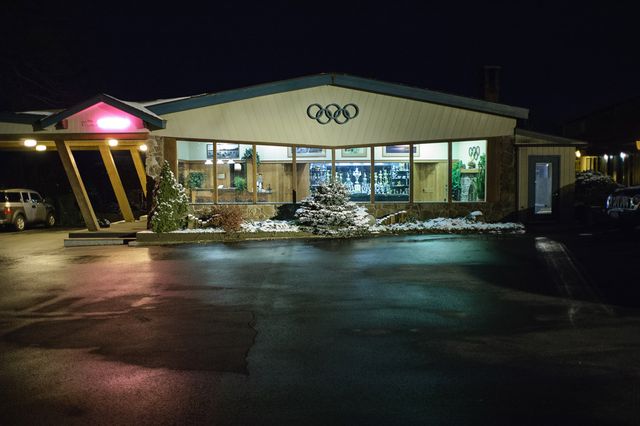
In听the Kickstarter video, you mention that seeing the money spent on the inquired you to wonder what happens to these cities. Why did you decide to turn that question into a huge听project?
听Well, I wasn鈥檛 sure at first if it would turn into a project at all.听To be honest, I never had much interest in the Olympics. My wife, on the other听hand, is a big fan and has been听since she was little. She has really happy听memories of writing to invite to dinner in a fan letter when she听was 11. (He never responded.) So leading up to the 2008听Olympics, I found myself听paying more attention than I had to Games in the past. I was intrigued that so听much of the coverage was about the money being spent and the venues听being听constructed for an event that would only last a few weeks. I kept wondering what听would become of these buildings after the Games, so I went on a bit of a听fact-finding听mission and did some research. Then I rented a car and kept it听local, mostly because of money and time constraints, and drove up to Lake听Placid and Montreal.
In Lake Placid, I听stayed at , a hotel opened by a former Olympic ski jumper. The hotel lobby was听jam-packed with his trophies and awards. A handful of dusty shops听on the听village鈥檚 main street are filled with all sorts of memorabilia from the 1980听Games鈥攖he shops appear to be closed most of the time, but handwritten signs听let interested folks听know how to get ahold of the owners. The former Olympic听Village where the athletes were housed is now a prison鈥攚ell, it was a prison听first, then a place to house the athletes, and听then a prison again.听听Not only听that, but the prisoners helped build the ski jumps used in the Games. So that听trip really invigorated me, and definitely made me feel like this could be a听project worth exploring.
I saw听on the site that you鈥檙e photographing L.A., Montreal, Lake Placid, Athens, Rome, Mexico City, and Sarejevo. How are you picking the cities?
听As I mentioned at first I was really just sticking close to home and听driving to a few places to see if I felt like there was a project in the idea.听Then when Gary joined the project,听we talked about where to go next, and based听on some of my research and our conversations about what we were looking to听find, we both agreed that Athens and Mexico City were听musts, since so much had听changed in both places since the Games left. But beyond that, we wanted to hear听from people who are following the project about where we should go. One听of the听great things about launching a Kickstarter campaign is all the feedback that we鈥檝e听gotten. Those tips and ideas, along with our own research, absolutely inform听our choices听when it comes to where we鈥檒l decide to go. And for two of the cities,听we鈥檙e leaving those decisions entirely in the hands of our .

Did you have a preconceived notion going in of the effects hosting the Olympics听would have on a听city?
No, I definitely didn鈥檛 go into this thinking that I had a good idea听of what I鈥檇 be looking at. I really was mostly just interested in seeing what听remained鈥攁nd that could be听something positive or something negative. I鈥檝e had听people tell me that the Games were a terrible thing to happen to their city,听and I鈥檝e had people tell me the exact opposite. It听really depends on whom you听talk to. And keep in mind that for every abandoned volleyball stadium or empty听swimming pool, there鈥檚 a venue that鈥檚 been repurposed as a church or a听theater.听This project is very much about both; I want to explore and document both the听good and the bad.
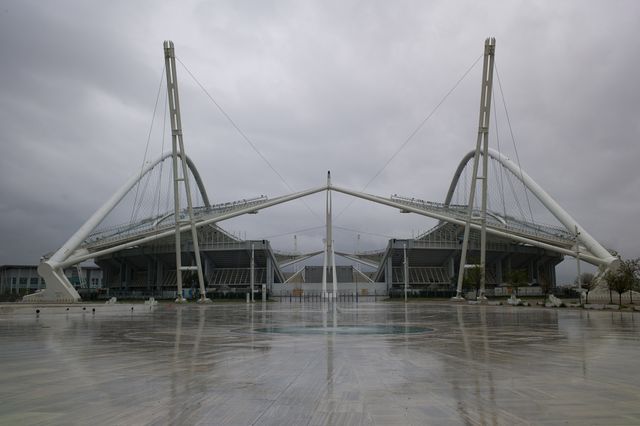
How听are you picking what to photograph?
It鈥檚 a tough question to answer because, as a photographer, I tend to听take pictures of what feels right, and that鈥檚 still a big part of my听process. But for this project, I will say听we鈥檙e as interested in capturing听images of the old structures, either what鈥檚 left or what they鈥檝e become, and听anything else that reflects the lasting impression the Games may have听left,听including the cities themselves and, of course, their inhabitants. I met and听photographed some people in Athens and in Lake Placid who were really proud of听their involvement in听the Olympics, and that was one of the best parts of my听trip, so I鈥檇 love to try to make those connections as often as I can.
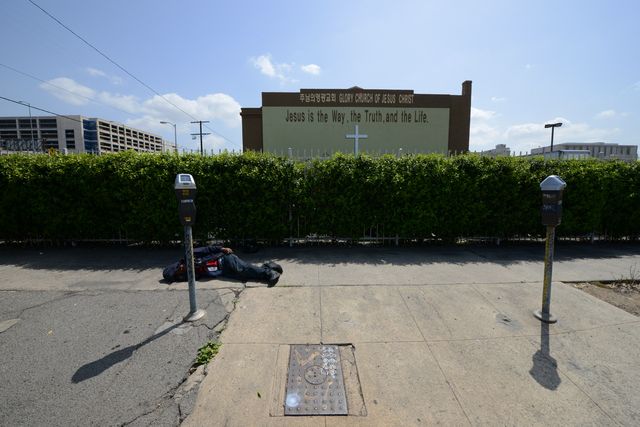
What听has surprised you the most so far?
Since I wasn鈥檛 a huge fan of the Games before taking this on, it鈥檚 been听really interesting to find that so many people are like my wife鈥攁bsolutely听passionate about the Olympics, and for so many different reasons. There鈥檚 a听great sense of national pride that comes with the Games, particularly for the听host cities, and it really can unify a lot of different cultures听for those听brief few weeks. On the flip side, there are people who feel the Games have听become an overblown spectacle, one that does more harm than good. But like I听said, the听opinions are much more passionate than I was anticipating.
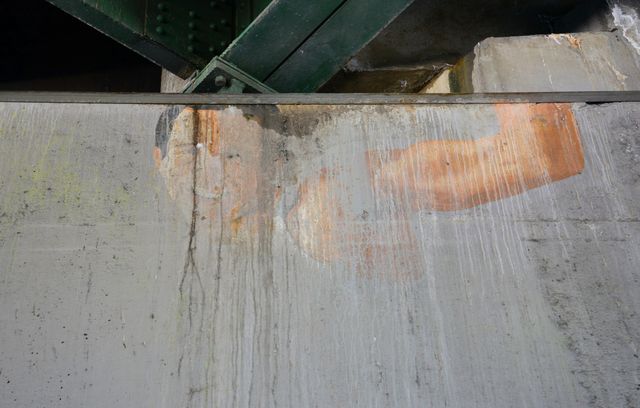
The remains of a 1984 Olympics mural, Los Angeles. Photo: Courtesy of
What听is the biggest negative trend you鈥檝e seen so far in these cities?
There really hasn鈥檛 been an overarching trend, and that鈥檚 part of what I听think will keep this project so interesting. If every host city allowed the听Games to wreak havoc on their听landscapes and their architecture, I think there听would be less to photograph, in a way. Sure, there鈥檚 quite a bit of abandoned听space in Athens, but there is also a beautiful subway and听a lovely theater in a听repurposed badminton stadium. It鈥檚 that mix of trends that I鈥檓 hoping for.
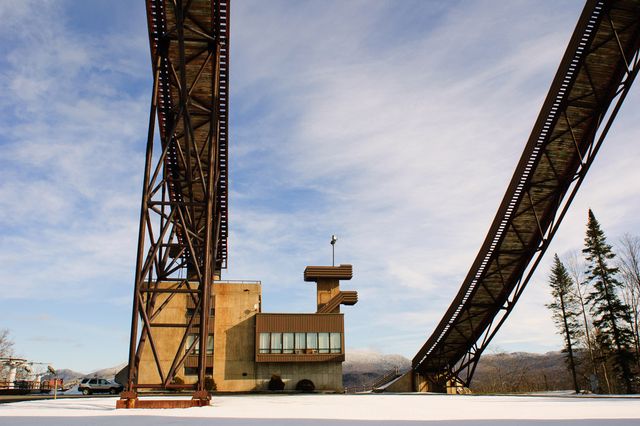
What听do you hope the end result of this book will be?
We want it to be听beautiful, and representative of our work as听photographers and collaborators, both Gary and I, and our designer, the great听. He is going to do an amazing job of听creating the best package to听house these photos.听We also want the impact of the Games to really come through in these photos, to give the reader a sense of the impression they鈥檝e left on these very different cities.
For more, check out .
鈥擩oe Spring